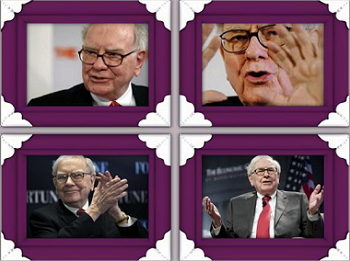Researchers from AQR Capital Management, a Connecticut-based asset manager, claim they have uncovered the source of Warren Buffett’s alpha. They believe Buffett-like performance can be achieved by constructing a portfolio with exposure to certain “factors.†But their theory hinges on a crucial assumption, which, as I will show, is highly tenuous.

Buffett’s returns, based on Berkshire Hathaway’s stock price, didn’t come from successful stock-picking, AQR claims. Rather, the source of his outperformance was from his exposure to low-beta and high-quality stocks.
AQR and Dimensional Fund Advisors (DFA) have begun to incorporate those factors into their portfolio construction. This research raises the hope of duplicating Buffett’s success in a conventional, open-ended mutual fund.
I’ll look at the findings of this research and why I am skeptical of its implications.
Buffett’s alpha
Buffett has outperformed every stock and mutual fund on an absolute and risk-adjusted basis over the last 30 years. Previous research has failed to identify the sources of Buffett’s returns through the standard four-factor Fama-French model. Those studies found that Buffett’s returns could not be explained by exposure to value, market capitalization or momentum. His returns were mathematically equivalent to alpha.
Whether that alpha is due to luck or skill has been a matter of debate. Buffett’s position, stated in a 1984 article based on a talk he gave at Columbia University and in other writings, is that it is skill. Buffett attributes his skill to a rigorous application of the value-investing principles laid out by his one-time teachers, Benjamin Graham and David Dodd, most notably in their 1934 book, Securities Analysis.
Andrea Frazzini, David Kabiller and Lasse Heje Pedersen of AQR published Buffett’s Alpha in November of last year. The AQR researchers essentially expanded the Fama-French framework from a four- to a six-factor model, adding exposure to low-beta stocks and exposure to high-quality stocks. Those two factors, they claimed, explain Buffett’s success, eliminating his alpha.
They wrote –
“Buffett’s performance appears not to be luck, but an expression that value and quality investing can be implemented in an actual portfolio (although of course, not by all investors who must collectively hold the market).â€
The average beta of Buffett’s public stocks was 0.77, and Berkshire Hathaway’s (BRK-B) beta was 0.68. The AQR researchers attribute some of Buffett’s excess return to this low-beta exposure, consistent with other research. But a greater contributor to returns was Buffett’s exposure to high-quality stocks, according to the authors. High-quality stocks are defined as those of companies that are profitable, stable and growing and have high payout ratios.

